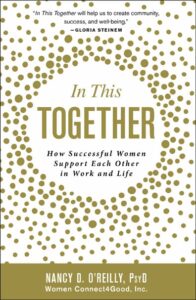
Women have been left in the shadows and not given the credit they deserve. Last month, NASA made a course correction and officially renamed a facility in West Virginia after Katherine Johnson. You may remember Katherine, an African-American mathematician and centenarian whose career was depicted in the film “Hidden Figures.” This was not the first public acknowledgement of her work. In 2015, President Obama awarded her the Presidential Medal of Freedom.
Johnson and other black women mathematicians, who worked in NASA’s computing pool more than 50 years ago, were separated from their white colleagues, and commonly called, “colored computers.” These women calculated trajectories for the Apollo missions, and Johnson herself tracked several major missions, including Alan Shepard’s Freedom 7 in 1961 and John Glenn’s Friendship 7. “Hidden Figures” highlighted Johnson and other black women’s fight for equality in the workplace.
The lack of acknowledgement Johnson received for her work is not an isolated incident. Women have not received credit for a number of brilliant breakthroughs and achievements for hundreds of years. Sometimes deliberately stole credit for women’s work, other times the recognition was transferred more indirectly. This has created a false myth that women’s history lacks great creative and intellectual achievement, which undermines women’s past and future accomplishments, and has largely erased their work from history books, and eliminated powerful role models from the stories we tell our children.
Johnson and her colleagues are just one example of remarkable women throughout history who didn’t get the credit they deserved for revolutionizing the world we live in.
Lise Meitner discovered nuclear fusion. As acting director for the Institute for Chemistry in 1933, Meitner had to flee after Hitler came to power, but kept in touch with chemist Otto Hahn. Letters between the two of them show that they discovered nuclear fission together in the 1930s. Meitner was denied proper credit due because she was Jewish and a refugee, whereas Hahn, who stayed loyal to the Nazis, later won the Nobel Prize for this work, and refused to give Meitner credit.
Trotula of Solerno was a pioneer in women’s health. An Italian doctor in the eleventh century who wrote specifically about women’s health, Trotula of Solerno has been recognized as “the world’s first gynecologist.” Her writings are still considered building blocks in our knowledge about human health, and women’s health specifically. However, her work had been questioned over the centuries because historians and medical professionals were skeptical that a woman could have produced works of such accuracy or importance.
Hedy Lamarr invented wireless communication. During World War II, Hedy Lamarr worked closely with George Antheil to develop the idea of “frequency hopping,” which would have prevented the bugging of military radios. The U.S. Navy ignored her patent though and used her research to develop new technologies. Years later, her patent was rediscovered, which led to her receiving the Electronic Frontier Foundation award shortly before her death in 2000.
Anna Arnold Hedgeman organized the March on Washington. Anna Arnold Hedgeman was the only woman on the organizing committee for the 1963 March on Washington where Dr. Martin Luther King, Jr. gave his “I Have a Dream” speech. But according to Bowdoin College professor Jennifer Scanlon, the civil rights leader was “hidden, concealed, out of sight” by the men around her. Not only did Hedgemen galvanize many different groups of people to participate in the march, she organized transportation and made sure attendees had food and water.
While these women’s stories, and many more like them, have been uncovered and are once again being shared and told, there are tens of thousands of women whose work remains in the shadows. Take for example the women who fought for our right to vote, or the multiple black women who were part of the Civil Rights Movement, and today the women who march, and who courageously share their stories through the #MeToo movement and #TimesUp. Their stories need to be told and their achievements celebrated so their work can light the way and for other women to follow.
The women whose work has shaped our history have created the foundation for us to boldly move into the future and have paved the way for us to pursue parity in political office, equity in men-dominated workplaces, equal access to high-status professions, equal treatment after divorce, and punishment of sexual harassment and rape. They have set the stage for us to achieve full equality. We need to share their stories and write our own—giving ourselves the credit we deserve.
Order Dr. Nancy’s new book today!
 Marlene Chism, author of Stop Workplace Drama and No Drama Leadership says In This Together, “Offers women a powerful perspective about how to advance, how to get support and how to give support to others.”
Marlene Chism, author of Stop Workplace Drama and No Drama Leadership says In This Together, “Offers women a powerful perspective about how to advance, how to get support and how to give support to others.”
Check out In This Together: How Successful Women Support Each Other In Work and Life to see how you can develop a community of like-minded allies…there’s a ton of actionable insights from 40 successful women that will help you harness the collective power of that community.”
Order your copy – and gifts for your friends today!

